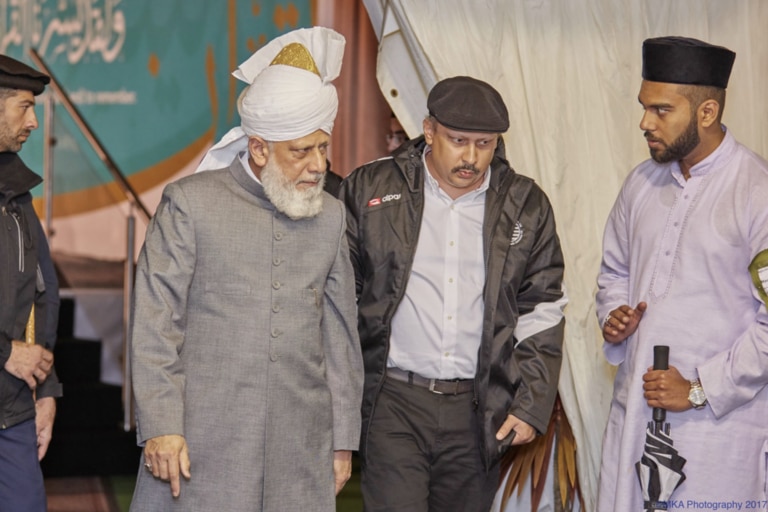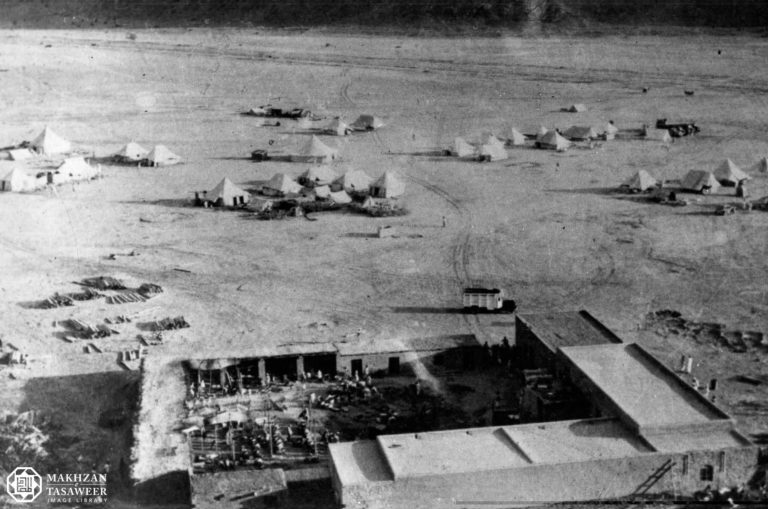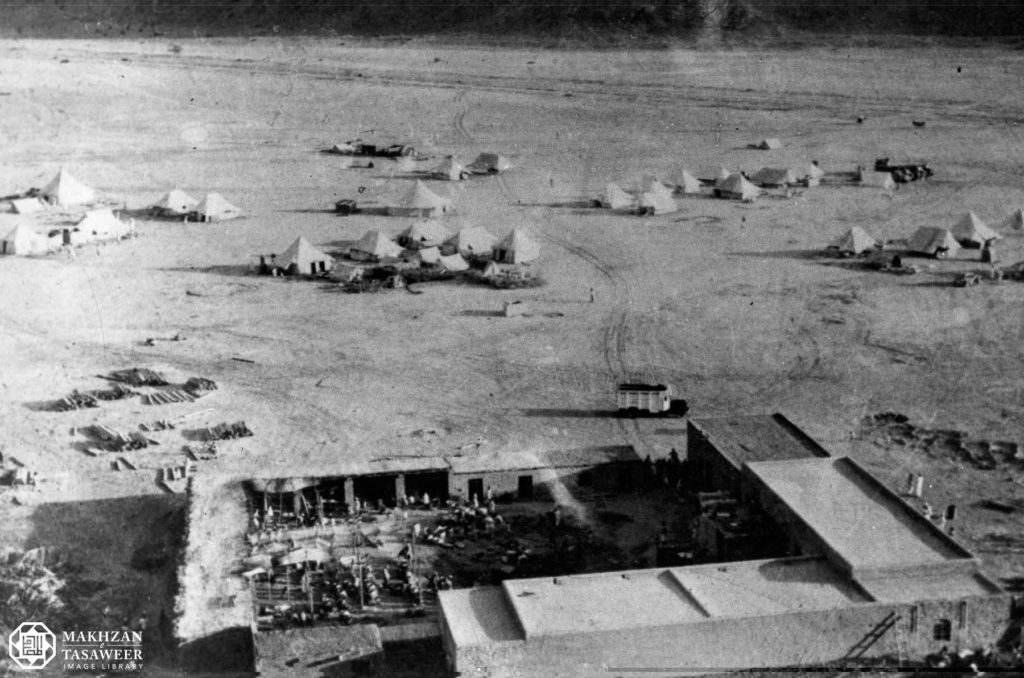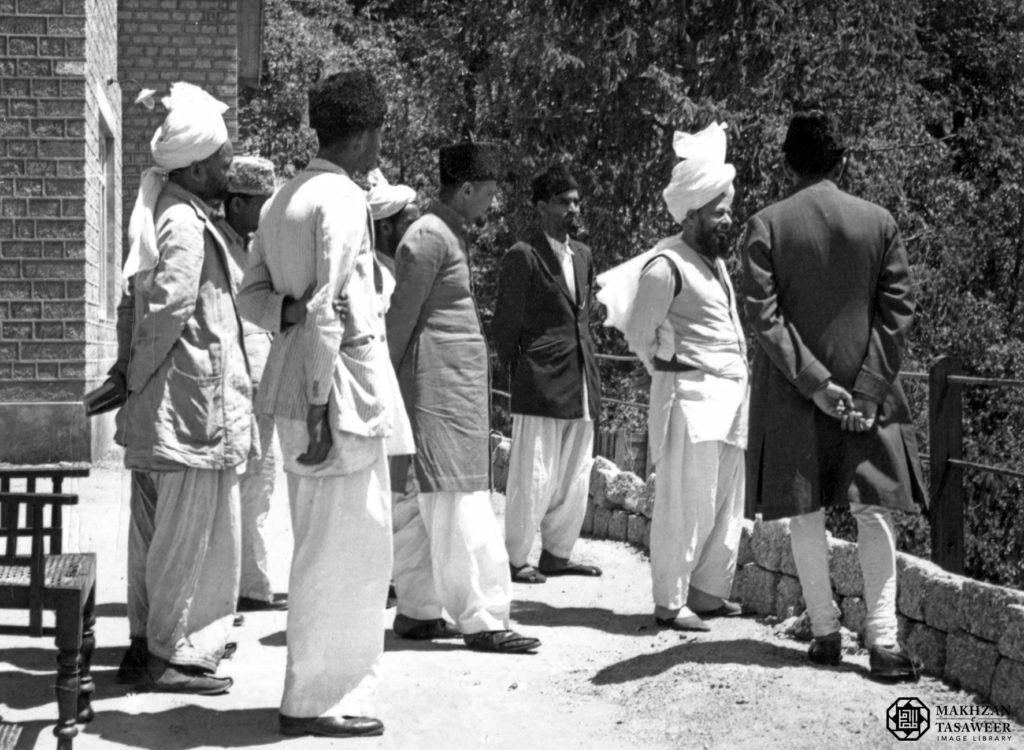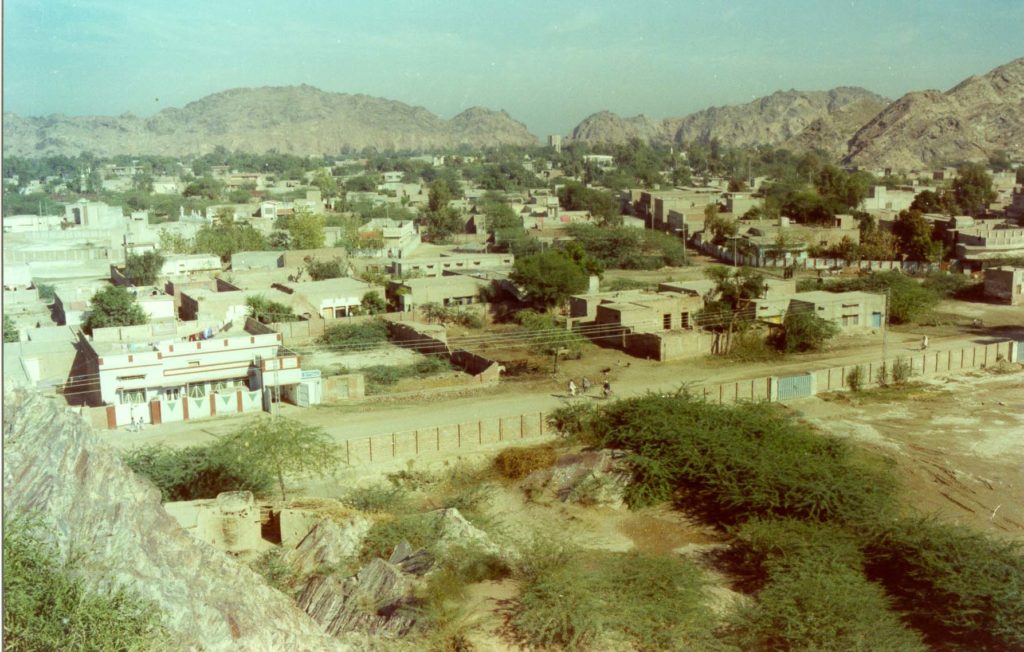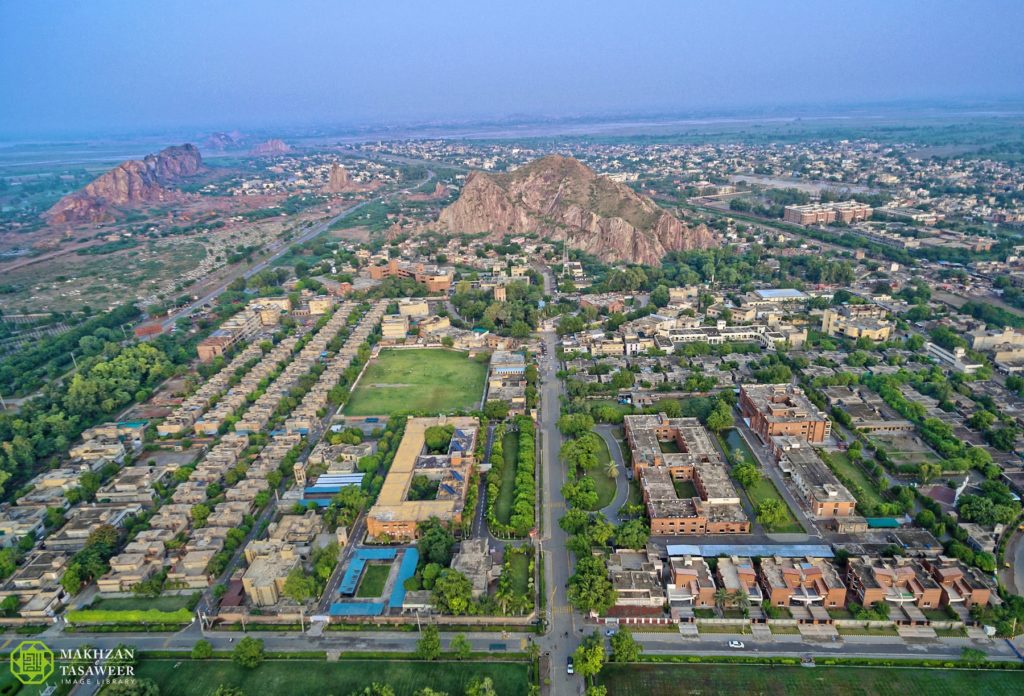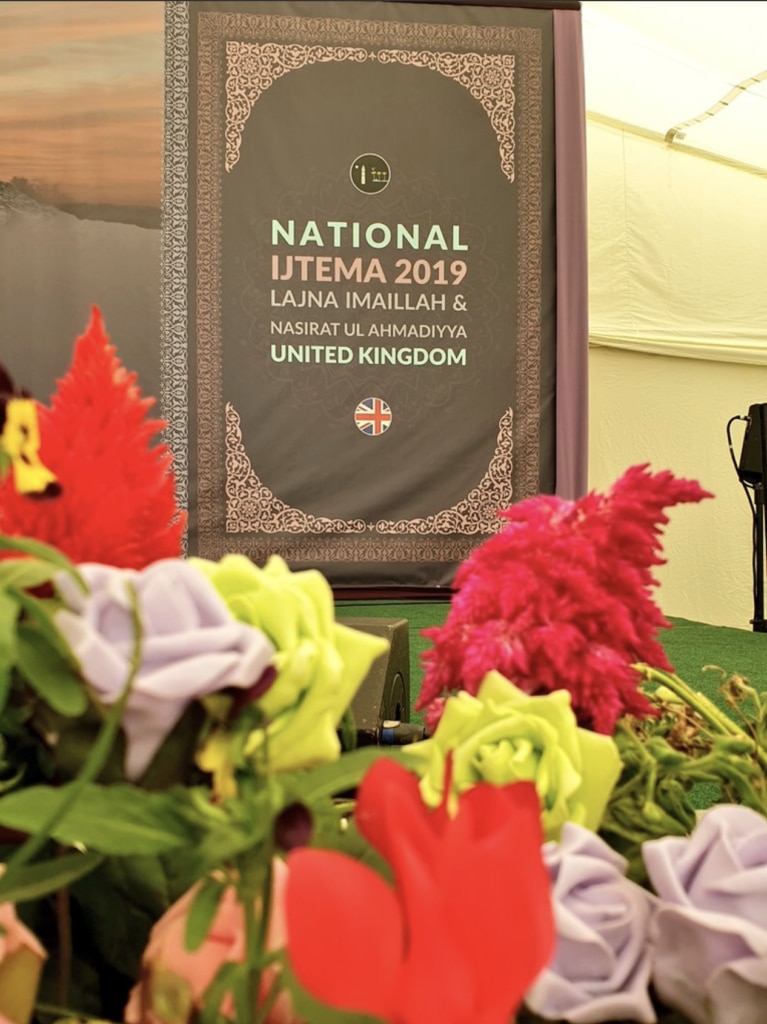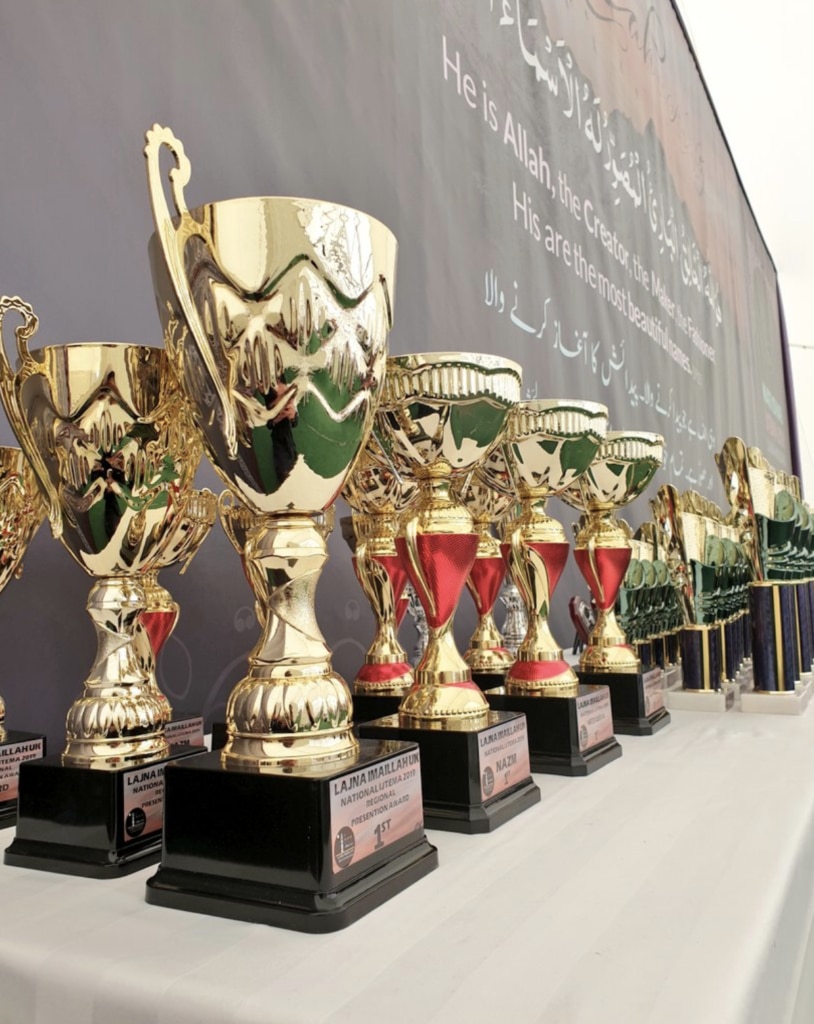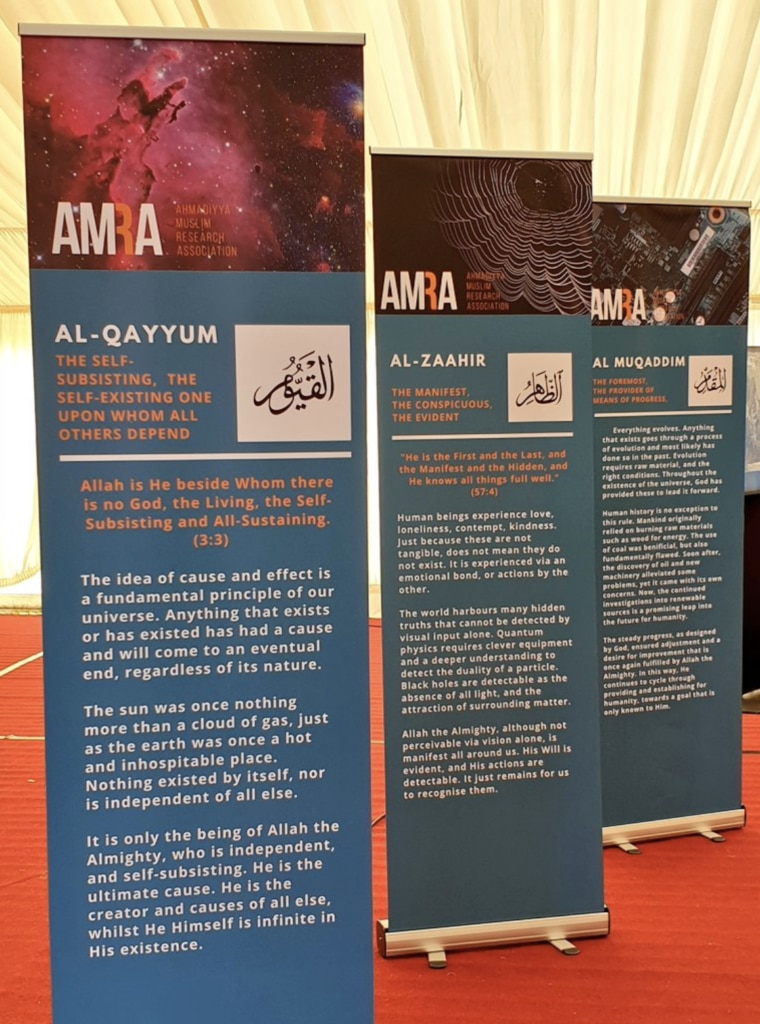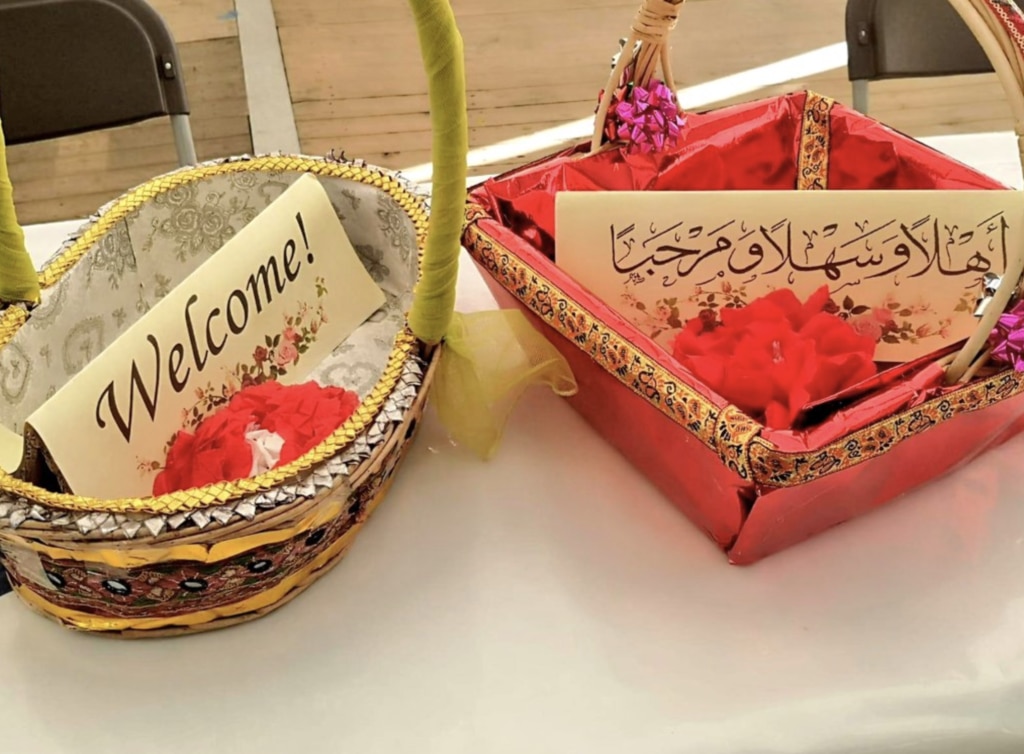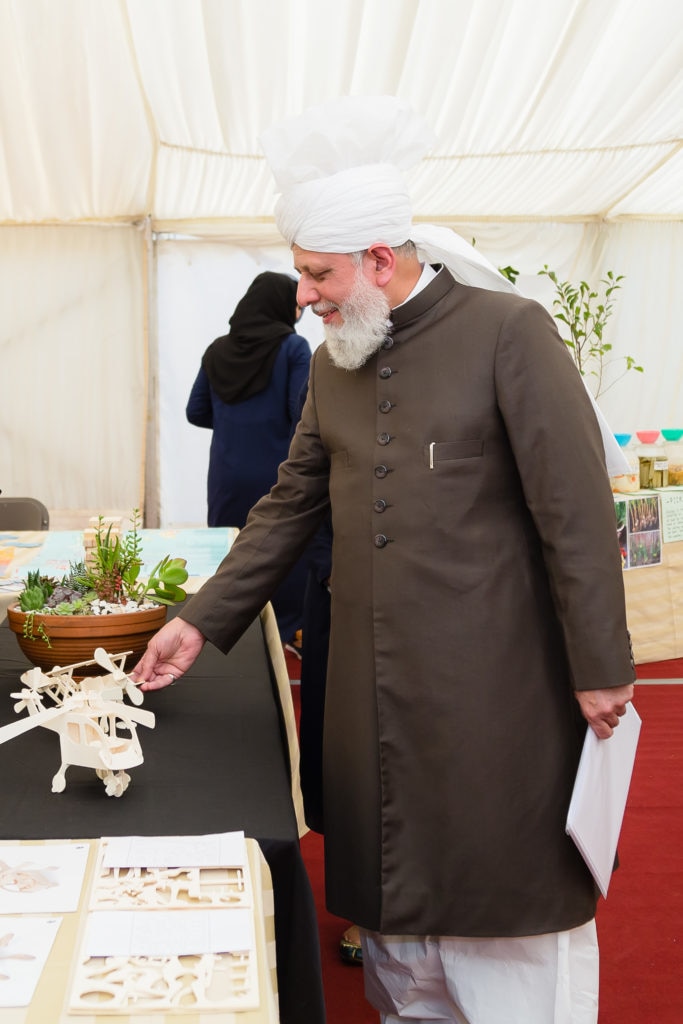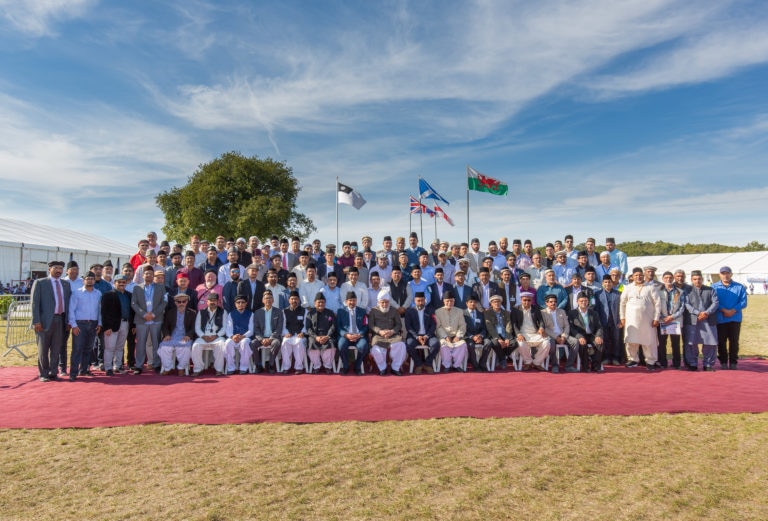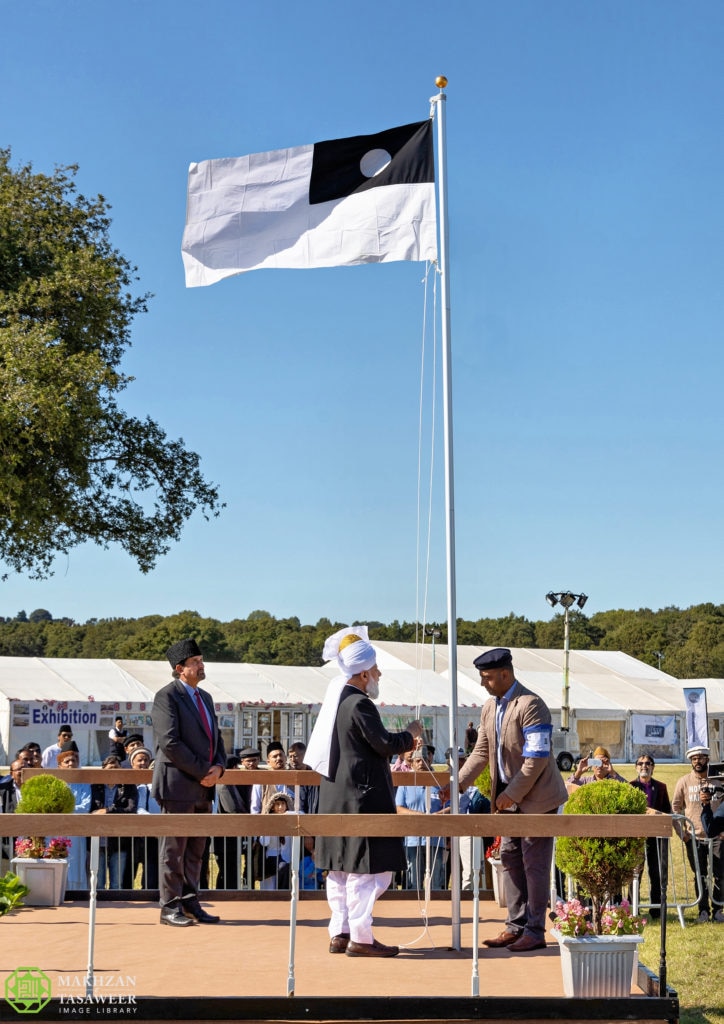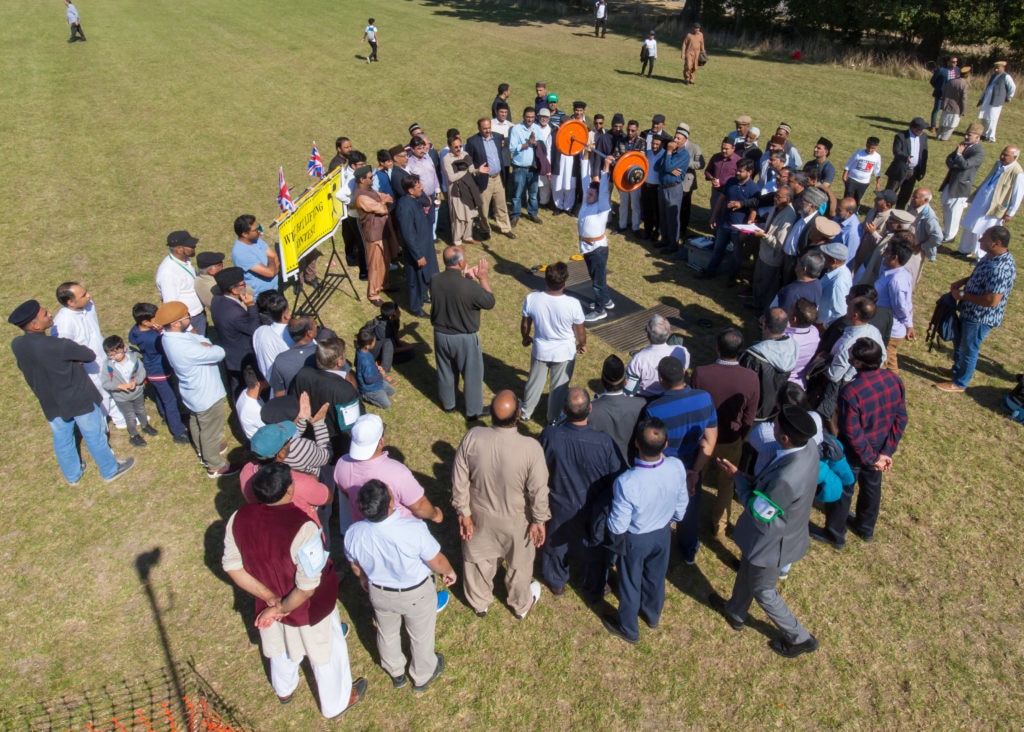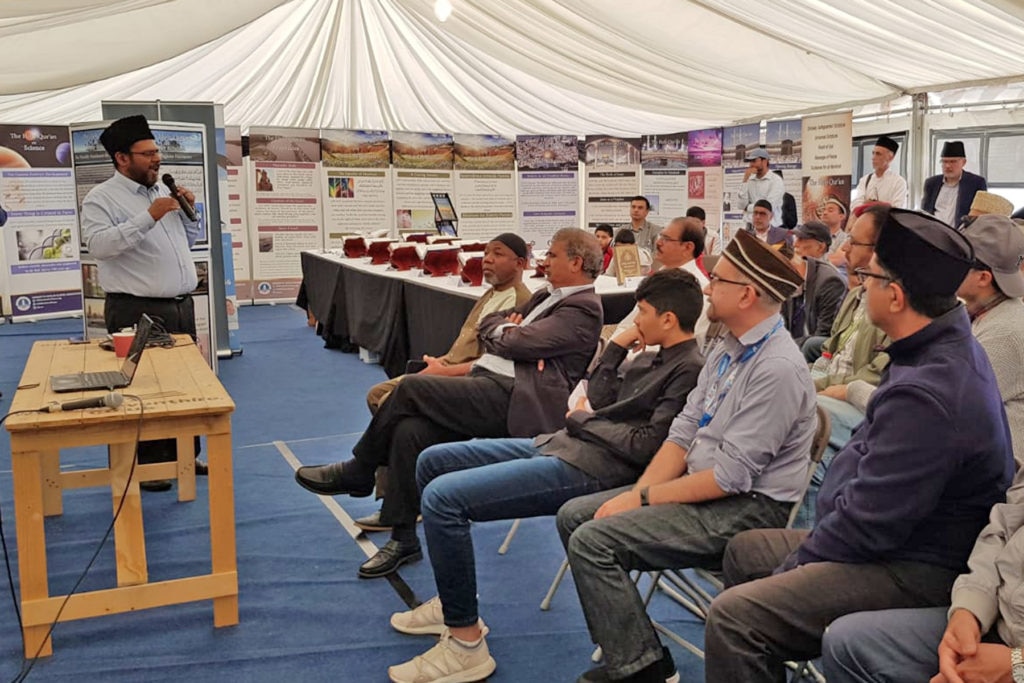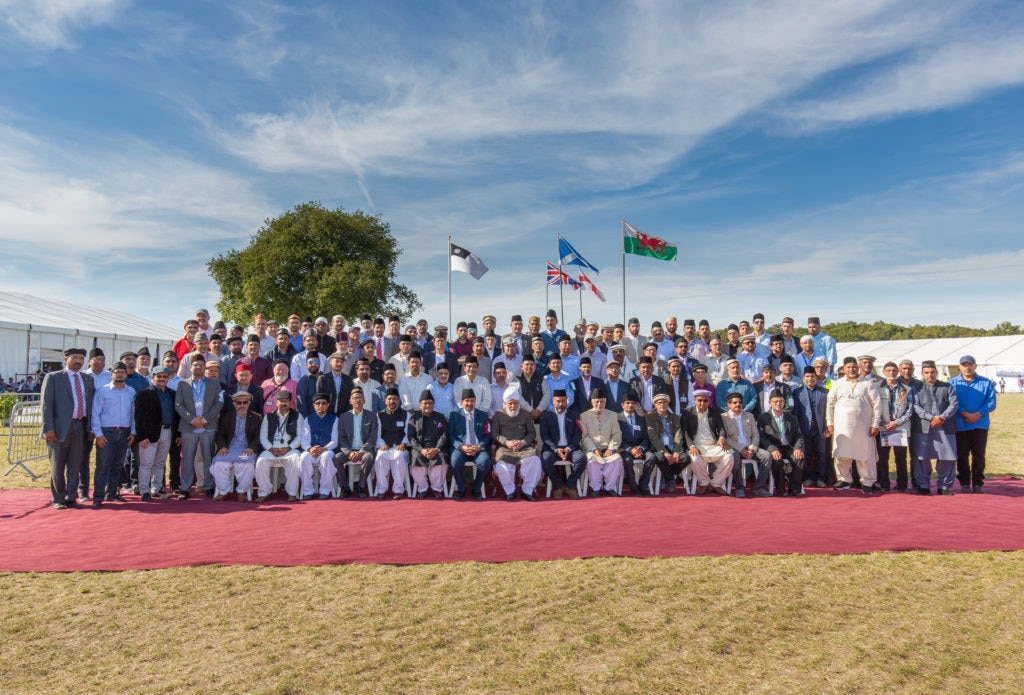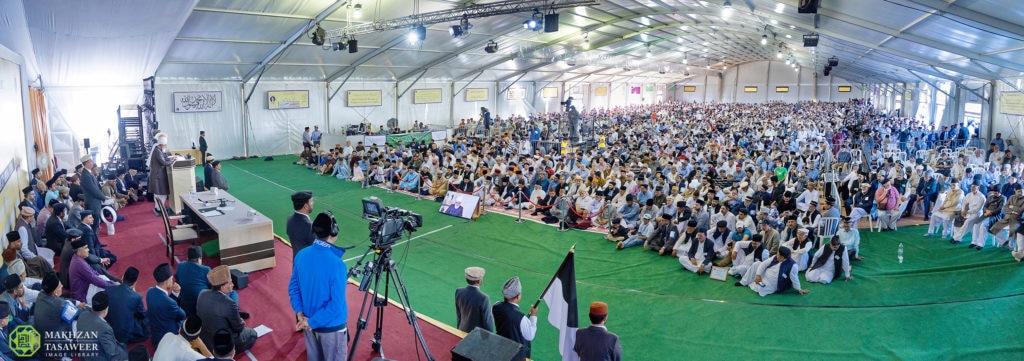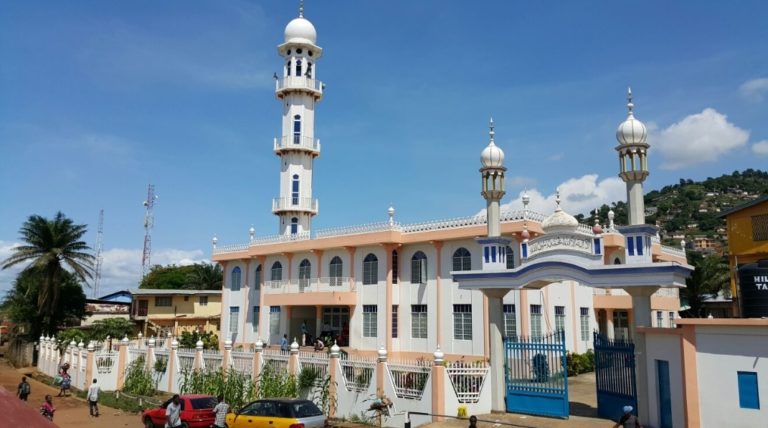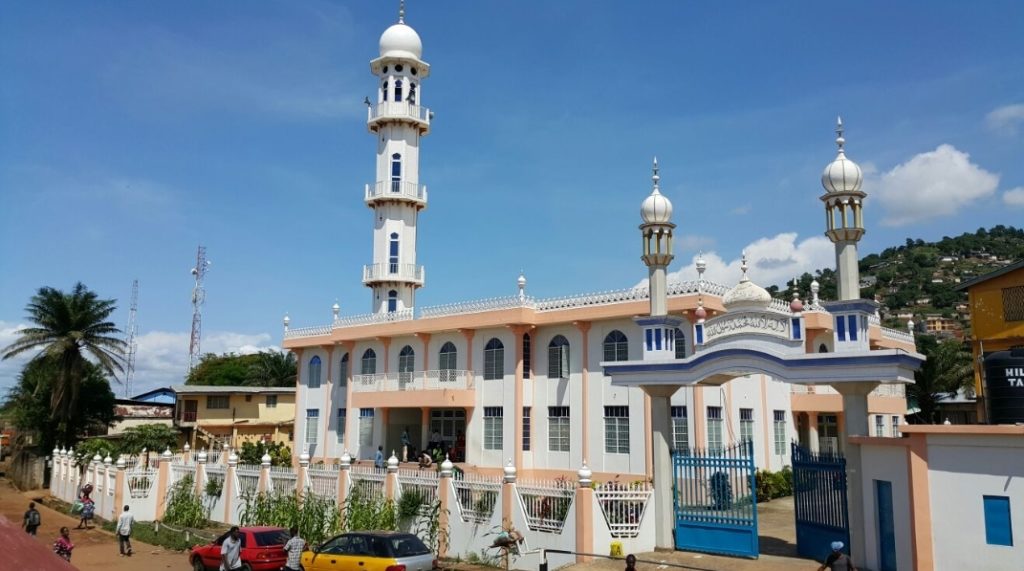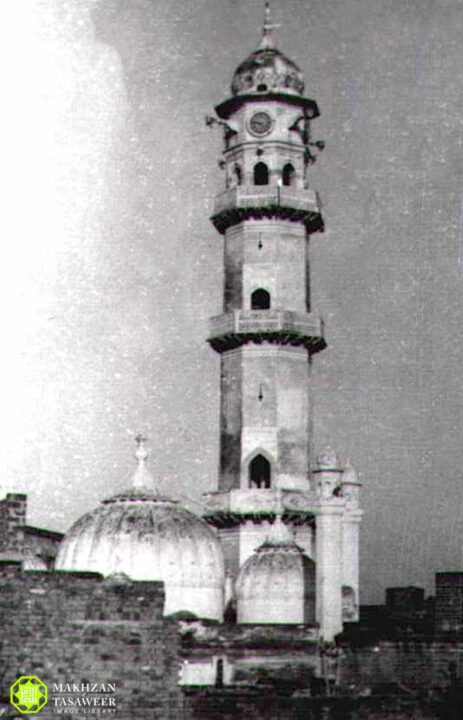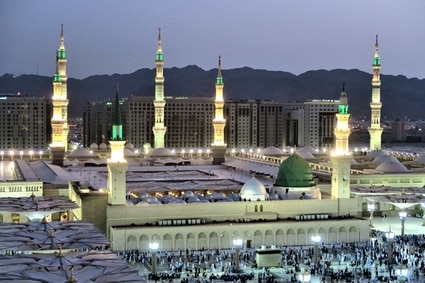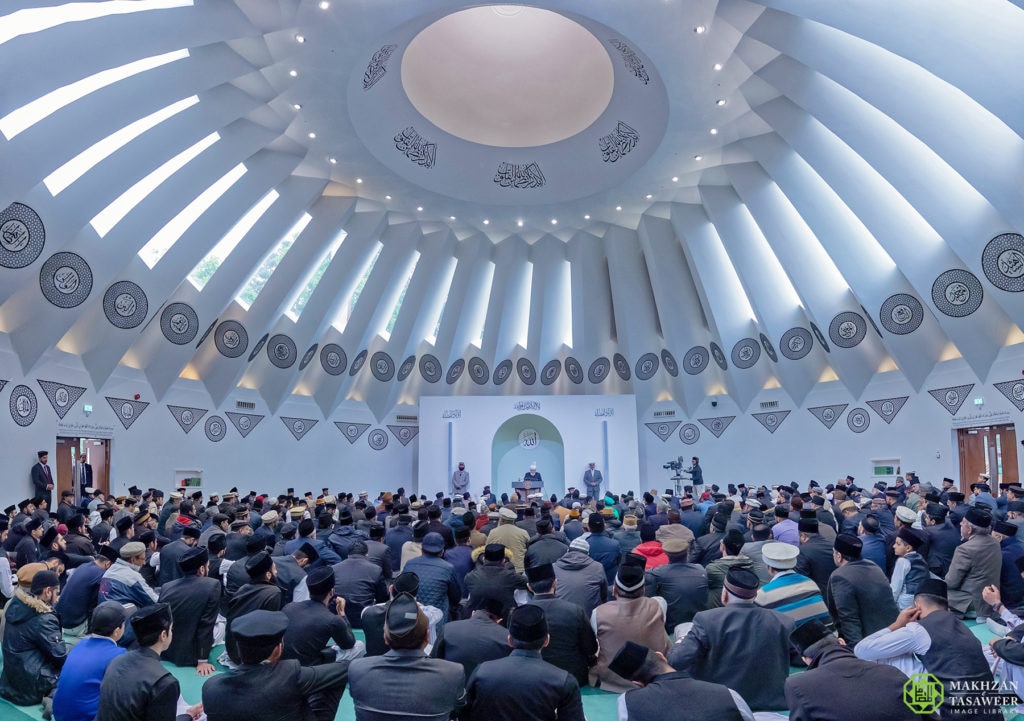Mirza Waqas Ahmad Sahib had the opportunity to serve as Sadr Majlis Khuddam-ul-Ahmadiyya UK from 2012 to 2018. During this year’s Ijtema, a special sitting was arranged with him in which Khuddam asked questions, especially about Huzooraa. The result was that Khuddam were able to better understand the honour, grandeur and importance of Khilafat.
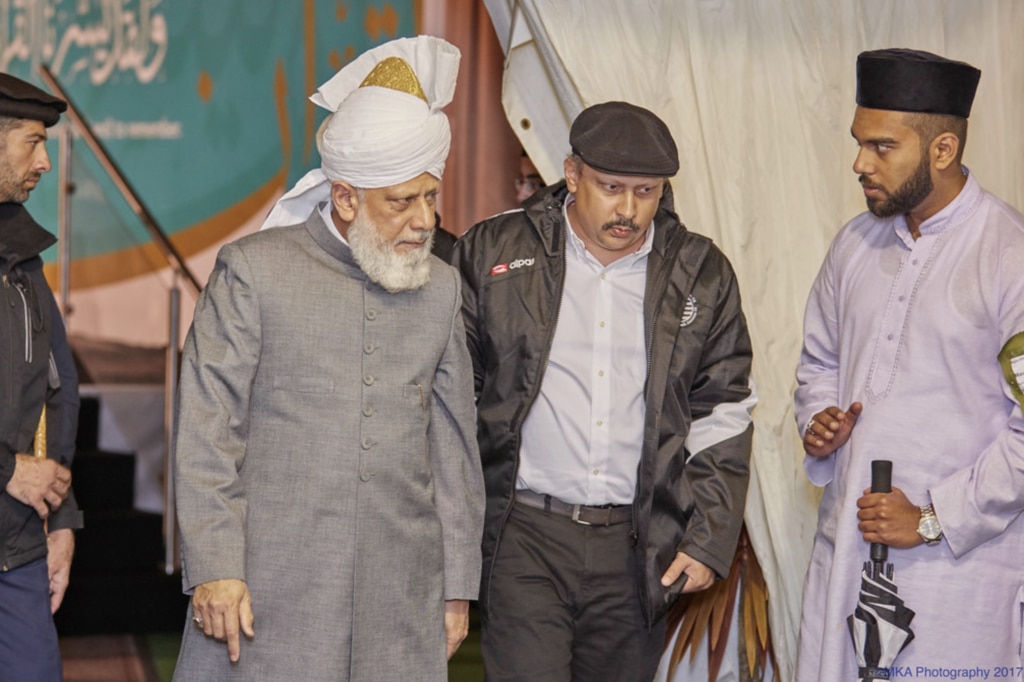
For this very purpose, Al Hakam presents the transcript of this conversation so that our readers may also benefit. We are grateful to Mirza Waqas Ahmad Sahib. Fa–jazahumullah Ahsanal Jazaa.
Question: As Huzooraa is the grandson of Hazrat Sahibzada Mirza Sharif Ahmadra, we first request you to tell us about Hazrat Sahibzada Mirza Sharif Ahmadra.
Mirza Waqas Ahmad Sahib: I first wish to tell everyone why I have come to this sitting. The Nazim-e-Ala of this Ijtema, Yousuf Aftab Sahib contacted me and asked me to hold this session. Initially, I apologised and said I would not be able come. However, he insisted and said that the Khuddam would find the sitting interesting. In reply, I said that during the last six years, I have had the chance to speak to Khuddam a great deal.
A few days later, I received a message from Yousuf Sahib who said that Sadr Sahib also desired that I attend this sitting. I thought to myself that as I have a few months left of being a Khadim, after which I will enter Ansarullah, it is best that I enter Ansarullah by showing obedience to Sadr Majlis Khuddam-ul-Ahmadiyya.
Now, I will answer the question. Hazrat Sahibzada Mirza Sharif Ahmadra was the third child out of the promised progeny of the Promised Messiahas. He had two older brothers, Hazrat Musleh-e-Maudra and Hazrat Sahibzada Mirza Bashir Ahmadra. Younger than him were his two sisters, Hazrat Nawab Mubaraka Begumra and Hazrat Nawab Amatul Hafeez Begumra.
Hazrat Mirza Sharif Ahmadra was the [paternal] grandfather of Huzooraa. Huzooraa completed his first reading of the Holy Quran under Hazrat Mirza Sharif Ahmad Sahib’sra supervision.
He was a very technical minded person and the paternal side of our family has inherited this characteristic. In fact, most of his progeny have a deep understanding of technical matters.
Hazrat Mirza Sharif Ahmadra was a very quiet and soft-spoken person; he spoke very little. Hazrat Musleh-e-Maudra once said that of the three brothers, Hazrat Mirza Sharif Ahmadra resembled the Promised Messiahas in terms of looks and personality the most.
He had two other brothers as well who were from the first wife of the Promised Messiahas. From them, Hazrat Mirza Fazl Ahmad passed away before accepting the Promised Messiahas while Hazrat Mirza Sultan Ahmad did Bai‘at during the time of Hazrat Musleh-e-Maudra.
Of the promised sons the Promised Messiahas was blessed with from Hazrat Amma Janra, the first to pass away was Hazrat Mirza Sharif Ahmadra. Then Hazrat Mirza Bashir Ahmadra passed away and the last son to survive was Hazrat Musleh-e-Maudra.
Question: Please can you narrate an incident from the life of Hazrat Sahibzada Mirza Sharif Ahmad’sra life.
Mirza Waqas Ahmad Sahib: There are lots of incidents that I have heard. I’ll narrate one that Huzooraa narrated during an interview.
Hazrat Sahibzada Mirza Sharif Ahmadra had an immense amount of respect and reverance for Khilafat. He was the grandfather of Huzooraa, so once he took Huzooraa along with him to meet Hazrat Musleh-e-Maudra. At the time Huzooraa was a young boy and so Hazrat Mirza Sharif Ahmadra told Huzooraa to “go upstairs and seek permission for me to enter. Say that I have come, and I request permission to meet [with Hazrat Musleh-e-Maudra].”
Huzooraa went upstairs and Hazrat Maryam Siddiqa, the wife of Hazrat Musleh-e-Maudra was present. She sought permission from Hazrat Musleh-e-Maudra and then instructed Huzooraa to tell Hazrat Mirza Sharif Ahmadra to come up.
Huzoorra narrated that Hazrat Mirza Sharif Ahmadra went up to meet Hazrat Musleh-e-Maudra in his room. He did not sit next to Hazrat Musleh-e-Maudra on his bed, nor did he sit in front of him on a chair. Rather Hazrat Mirza Sharif Ahmadra stood with great respect and conversed whilst standing with Hazrat Musleh-e-Maudra. It is also narrated that he sat on the floor. Nevertheless, he did not sit beside Hazrat Musleh-e-Maudra out of respect. He then sought permission and took leave.
Huzooraa says that this incident was the first lesson of his childhood about the respect and honour of Khilafat. The reason for this is because Hazrat Mirza Sharif Ahmadra was the brother of Hazrat Musleh-e-Maudra, but still did not sit beside him. He first took permission to enter, then when he was present before Hazrat Musleh-e-Maudra, he stood with great respect and spoke in a very respectable manner. So, Huzooraa says that practically this was his first lesson on respect for Khilafat.
Question: You were Sadr Khuddam-ul-Ahmadiyya UK for six years; how was the experience?
Mirza Waqas Ahmad Sahib: It was a rich experience in every way. Holistically, it was a very good experience. When I was initially given this responsibility, I worried a great deal. Even though it had been nine years since I had come to the UK, I was still worried whether, due to a difference in culture or language, Khuddam might feel a distance from me. However, with the special grace and blessing of Allah, everything panned out to be fine. I really enjoyed the experience. All Khuddam cooperated with great love and affection. They listened to my instructions with great love. So my experience was very good.
What happened was that immediately after I was given this opportunity, I did not even know what was happening. There was pressure from everywhere. Everyone was calling, messaging and emailing me, presenting various problems and tasks that needed to be attended to. There were constant messages being sent to me.
Nonetheless, what I will say is that Khuddam really cooperated with me in every respect. Everyone listened to my instructions with love and work also went all very well. So, Alhamdolillah, it was a great experience.
Question: How did Hazrat Khalifatul Masih Vaa guide you with regard to this responsibility?
Mirza Waqas Ahmad Sahib: The truth is that everything happened as a result of Huzoor’saa prayers and guidance. When I was given the responsibility of sadr, the first task was to create my amila [working committee]. At the time, I did not know many people, so I just picked up the list of the last national amila and presented it before Huzooraa for approval. Huzooraa saw the list and enquired about every person in the list; their names and professional backgrounds. Huzooraa went so far as to enquire about even the regional qaideen and their backgrounds.
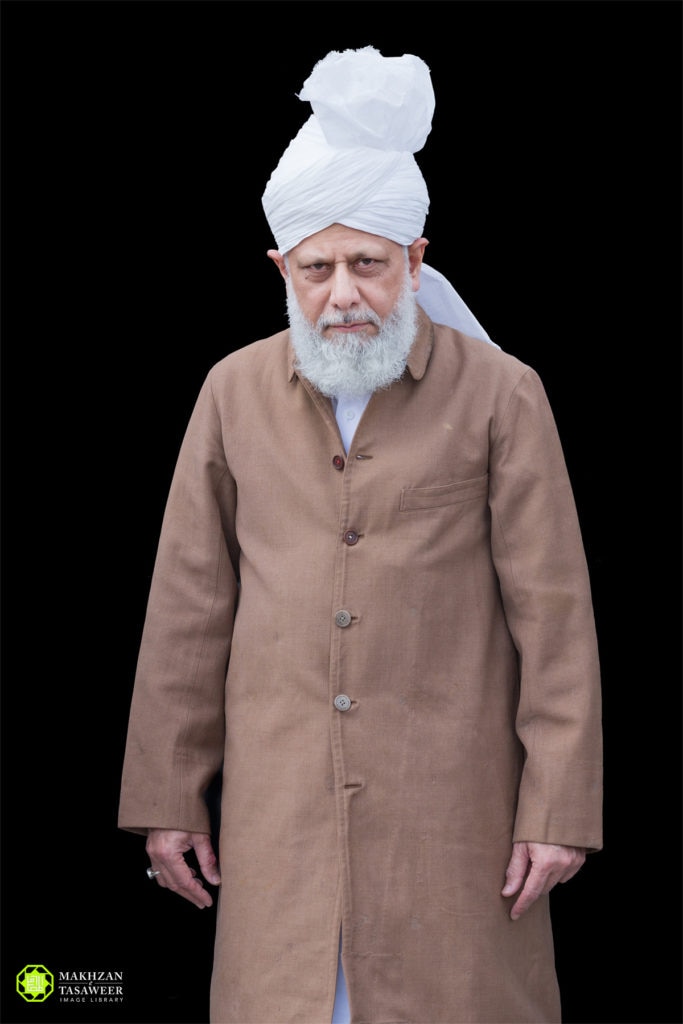
I would tell Huzooraa about those whom I knew and where I did not know someone, I simply said I did not know much about them. Upon this, Huzooraa said, “You should personally know every member of the [national] amila and every regional and local qaid; who they are, what they do and their backgrounds etc. You should know them personally.”
I not only strived for this personally but also instructed the qaideen at the qaideen forum to personally get to know all their Khuddam. In a similar way, during one of the forums, I went across the room and asked each person’s name and told them that I would try my best to remember their names.
After some time, during the days of Jalsa Salana, where the heavy responsibility of Afsar Khidmat-e-Khalq and Sadr Khuddam-ul-Ahmadiyya was upon me and when one’s mind is buried in countless tasks, a youngster suddenly approached me and asked, “What is my name?” Still in shock, I said, “I do not know your name”. He then said, “Okay, then at least tell me who I am?”. I replied by saying, “I do not even know who you are!”. He said, “Okay, then tell me what qiadat I am from?”. I sincerely apologised and said, “Please forgive me! I do not even know this.” He then introduced himself to me and in this manner, I was able to remember his name. Now, Masha-Allah he is part of the national amila, Samar Malik Sahib.
The point here is that it is very important to know each person at a personal level. Huzoor’saa guidance emphasised this point and I tried to act upon it.
Question: With regard to the national Ijtema, do you have any special memories?
Mirza Waqas Ahmad Sahib: I will say regarding the Ijtema that our elders say that if one wants to know how well an auxiliary organisation is working, then there is no better way than to observe their national Ijtema. My observation is that the Ijtema of Majlis Khuddam-ul-Ahmadiyya UK is improving every year.
I was just speaking to Sadr Sahib about how well the Ijtema is running and how good the site setup is this year. The Ijtema is always reaching new milestones. Look at the attendance and the general organisation; by the grace of Allah, we are witnessing continuous improvements. The Ijtema has developed a great deal.
Some time ago, the barbeque at national Ijtema would be greatly enjoyed. The reason the barbeque started was because the attendance at Ijtema was not much at the time and there were very few activities that would interest the Khuddam.
This was a long time ago. At that time, Hazrat Khalifatul Masih IVrh suggested to hold a barbeque in which regions could compete with one another. And in this manner, the Khuddam took great interest in this and the initiative was openly welcomed by them. In its time, the barbeque brought with it many benefits. The attendance improved and Khuddam also developed an interest in the Ijtema.
However, when the national Ijtema matured in its organisation and various activities were also on offer, the barbeque was not really needed. What would happen is that the whole of Friday would be spent in purchasing meat etc. and Saturday would be spent in setting up grills and gazebos and organising everything. In this way, two of the three days of Ijtema would go into the barbeque alone.
For this reason, the barbeque was stopped and, in its place, a collective dinner would take place on Saturday. When this collective dinner started, Huzooraa predicted that it would not last a long time. The reason for this was because now, the three days of Ijtema are packed with interesting activities, beneficial events, exhibitions and competitions and there is no time for anything else.
For example, look at this year’s Atfal Gah; there are very interesting activities for even those who are younger than seven. Parents are very happy that their young children can also benefit from the Ijtema. So, through the grace of Allah, improvements are taking place every year. Those who love the Jamaat will most definitely be happy by observing these improvements.
Organisers come and go. It is important that we play our part in the best possible manner and pray for those who are to come. This is how nations reform.
Another lesson that Huzooraa emphasised a lot was, “The leader of a nation is their servant.” In other words, those who lead nations are there to serve their nations. Huzooraa reminded me of this lesson on several occasions.
The reason I have mentioned this point is because here, in one capacity or another, everyone is in a leading role. Future leaders are also present here and we should all remember this advice given by Huzooraa.
I have seen this spirit developing within Khuddam-ul-Ahmadiyya. Every generation before leaving tells the next generation that now, this is their responsibility. They tell them not to become complacent but to stay occupied in service; to exert maximum effort in serving during one’s time.
Today, I have also witnessed that Sadr Sahib and all his amila are working tirelessly. This is a great sign. Therefore, acting upon this hadith [a leader of a nation is its servant], that Huzooraa instructed to follow, will ensure the progress of Khuddam-ul-Ahmadiyya.
Leaders of nations that do not work themselves and merely sit on stages will in turn halt the progress of their nation. How can they ever progress?
Last night, I came to the Ijtema site and saw today as well that everyone was working, irrespective of whether they were office-bearers of “higher” or “lower” levels. Seeing this, I was very pleased, that we are all bearing in mind this instruction of Huzooraa. Alhamdolillah.
Question: The theme of this year’s Ijtema is “The Existence of God”. Considering your personal experience, what would you say to Khuddam with regard to this theme?
Mirza Waqas Ahmad Sahib: With regard to narrating personal experiences, Sadr Sahib mentioned some experiences of Khuddam in his speech today. It is better to narrate incidents and experiences of others rather than your own. One begins to deviate towards an undesirable path by constantly narrating one’s personal experiences.
Every Ahmadi has personal experiences and with regard to Huzooraa, they are countless. For a connection with Allah, it is imperative that one constantly strives and never halters. This journey is continuous, and it cannot ever reach a level of complacency.
Huzooraa has continuously reminded us at home about the importance of Namaz. And so Namaz is a huge way to achieve nearness to and a connection with Allah. In fact, it is probably the only way. If one offers their Namaz in its proper manner, then slowly, a connection is established with Allah the Almighty.
The Promised Messiahas has stated that by listening to the experiences of others, one can reach the conclusion that there should be a God. However, the existence of God cannot be known with certainty without personal experience.
In an article for Al Hakam, I mentioned that Huzooraa never allowed us to show any laziness with regard to offering Namaz. If we were, or are, ever lazy, then Huzooraa does say one thing and that is, “Look, I am carrying out my responsibility by waking you up for Namaz.”
Along with this advice of Huzooraa, I would also like to say that practical examples hold great importance. By observing the attention and importance parents give to Namaz, children automatically learn [the importance] themselves.
In our household, we had the practical example of Huzooraa and our mother as well. So, we saw Huzooraa offering Namaz, we observed the acceptance of his prayers and still do so today. In very testing circumstances, we have seen the prayers of Huzooraa being accepted. By observing this, the importance of Namaz was established within our heart.
Anyhow, I will repeat what the Promised Messiahas said, and that is, to establish a personal relationship with Allah, personal effort is required.
Question: You lived with Huzooraa in Ghana and it was a time of difficulty. Tell us more about your experience there.
Mirza Waqas Ahmad Sahib: I was only six years old when we returned from Ghana to Pakistan. How would a six-year-old know of the difficulties present? This too is a sacrifice of parents, that they endure difficulties in such a manner that children are not affected.
Huzooraa lived there for seven to eight years and during that time, West Africa was passing through an extremely harsh drought. Food was scarce and would be located with great difficulty.
Recently, Al Hakam published an article in which my [maternal] uncle, Qasim Shah Sahib related that Huzooraa did not endure those harsh conditions by simply accepting them and doing nothing, rather both my parents used all their means in the best possible manner. My mother would bake bread herself at home, grow vegetables and keep chickens. There was also an avocado tree in front of the house and at the time, we were not aware of its value. In the UK, it is very expensive. We saw it as an average and tasteless local fruit, but still ate it.
Our mother tells us that it was a very difficult time. However, with patience and gratitude, Huzooraa spent his time in a good manner with whatever means were available. So, Qasim Shah Sahib’s article is very good in this manner. Being children, we spent that period in play and did not really feel any difficulty. Children are not aware of how food and clothing are being acquired. This article paints a picture of the conditions and how Huzooraa and my mother endured those circumstances readily, without ever complaining.
Our mother told us that once, milk had run out at home. She told Huzooraa – not by way of complaint, but to bring it to his knowledge – that there was no milk for us children. Upon this, Huzooraa said, “Don’t worry. To date, we have been able to acquire [milk] and we will also acquire it in the future.”
There was a town 150 miles away from where we lived. A missionary who lived there came to know that a delivery of milk had come at a shop. Fresh milk was not readily available and was hard to find. Long-life milk, also known as UHT milk had been delivered to the shop. The missionary intuitively thought that he should buy a carton of milk and deliver it to our house. Therefore, he took the bus, gave us the milk and then returned. Thus, Allah’s blessings were experienced throughout that period.
Question: You have just spoken about parents and children. Please tell us how the tarbiyat [upbringing] of children should be done?
Mirza Waqas Ahmad Sahib: I also have children and just a few days ago, I was thinking to myself whether I should do the tarbiyat of my children or my own. I think that before doing the tarbiyat of another, one should first do their own tarbiyat. In the same manner, before doing the tarbiyat of your children, you should look at your own self.
We want our children to develop attributes like that of saints whereas we ourselves stay the same. The Promised Messiahas has also mentioned that he would advise his children and then pray for them. Then, according to their capacity, they will take heed.
Usually we stay in a world of dreams and desires and think of various ways of how to do tarbiyat of our children. If we reform ourselves first, better results will manifest.
Question: How is the manner of tarbiyat [upbringing] by Huzooraa?
Mirza Waqas Ahmad Sahib: I will tell you this; Huzoor’saa manner of tarbiyat is very practical. Huzooraa does not give lengthy advice, nor can I recall hearing Huzooraa ever do this. Huzooraa acts himself first and then advises in a short sentence. This has always been his way and it is very effective.
A gentleman got married and was worried about how he would turn his wife’s attention more towards religion. Huzooraa advised him by saying that the Promised Messiahas said that a man’s piety and spirituality impacts his wife. And so Huzooraa told the gentleman to focus on his own piety and spirituality rather than giving lengthy exhortations to his wife. Both the wife and children are affected by the husband’s piety and spirituality.
I remember that Huzooraa never gave long and lengthy exhortations or advice. He would certainly narrate stories with morals behind them. For example, when we were children, Huzooraa would narrate how Hazrat Bilalra accepted Islam and as a result, the hardships he had to endure and his display of patience during those testing times. This incident is very close to Huzoor’saa heart.
At the time, we were also in Africa and Huzooraa was sent there to help African people. Huzooraa served in Africa at the educational departments and in agriculture. And so, in the sacrifice of Hazrat Bilalra, Huzooraa would see the sacrifice of that nation. Nonetheless, in terms of giving advice, Huzooraa would be very brief and then show his own practical example.

Question: Only recently, the new Markaz has been established in Islamabad. It is an honour for Majlis Khuddam-ul-Ahmadiyya for the opportunity to give security duties there. In this regard, what would you say to Khuddam?
Sahibzada Mirza Waqas Ahmad Sahib: Alhamdolillah, Allah the Almighty has blessed us with a new Markaz at Islamabad. It is the first year of your Sadr Sahib and during this time, Khuddam security duties have begun at Islamabad.
I think that Khuddam-ul-Ahmadiyya is currently doing a very good job. I will not say that there is no room for improvement, however it is being done to an acceptable level. With time, it will improve, Insha-Allah. I have noticed that Huzooraa often calls Sadr Sahib after Namaz and personally guides him. This is a great honour for the majlis.
It is a great blessing of Allah that He enabled us to witness this Markaz being opened. At the opening of the mosque, Huzooraa performed a sajda-e-shukr [prostration of gratitude] and we all joined him. This was no ordinary sajda. One could sense it. It was the first time I saw such sentiments being expressed by Huzooraa. That sajda was extraordinary and we are all very fortunate that we shared Huzoor’saa feelings and performed that sajda-e-shukr.
As a majlis, it is a great honour for you all that due to the new Markaz, Khuddam-ul-Ahmadiyya is serving under the direct guidance and instructions of Huzooraa. As a result, the relationship between Khuddam-ul-Ahmadiyya and Hazrat Khalifatul Masihaa has strengthened. Khuddam on duties express their joy and happiness and fondly speak of the gifts Huzooraa sends to them while they are on duty. This is truly very rejoiceful. One should show a lot of gratitude and humility at such a moment.
With regard to gifts, I recall a joke. It was the month of Ramadan, when a youngster approached me and asked whether Huzooraa had cake for sehri [breakfast]. I replied, “No, who told you that Huzooraa has cake for sehri?” He replied, “I was on duty in the morning and Huzooraa sent cake for us. From this, I gathered that Huzooraa has cake at sehri”. I explained to him that the cake was actually sent from Huzooraa for iftari but he received it during his duty at sehri. However, I could see that he still believed Huzooraa had cake for sehri.
Anyhow, I mentioned this because as we perform duties, love develops in the heart of Khalifatul Masihaa for us. It is a token of thanks from Huzooraa that he sometimes sends cake, fruit, chocolate and other gifts for Khuddam on duty. Otherwise security duties are our responsibility – they are compulsory – and it is Huzoor’saa love and kindness that he remembers Khuddam on duties in this manner and gives them support. This is very significant and we should cherish it. This love is extraordinary and special.
A poet has said:
نہ تخت و تاج میں نے لشکر و سپاہ میں ہے
جو بات مردِ قلندر کی بارگاہ میں ہے
“Neither in the throne, nor in the army is what is in the courtyard of a man of God.”
So, a mere glance of one who is from Allah achieves that which a great king cannot reach with all his power.

Question: How is Huzoor’saa relationship with his grandchildren?
Sahibzada Mirza Waqas Ahmad Sahib: They have the opportunity to meet Huzooraa during teatime. The younger ones sit a while and then go and play. Huzooraa speaks and jokes with them according to their temperaments and young age. He enquires about the education of the older grandchildren. However, Huzooraa has very little time and now, his daily activities have increased a lot.
When he used to have some time, he would spend relatively more time with them. Now, however, the little time Huzooraa has is at tea where he meets the children and answers any questions they have.
Huzoor’saa schedule is so busy now that it is just hard to believe. For example, take the last day of Jalsa Salana UK this year. Huzooraa always starts the day with Tahajud prayer. That day was no different. Then the whole day, he was occupied and also delivered his final address. Immediately after that, he began to meet delegations and later led congregational prayers. By the time Huzooraa reached home, it was around 11:30pm.
The very next day after Jalsa, Huzooraa started the day with Tahajud prayer again and was extremely busy the whole day. You and I rest after exhausting ourselves. However, observing Huzoor’saa busy schedule, it is hard to believe how it is even possible.
Question: When you found out that your father had become Khalifatul Masih, what were your feelings?
Sahibzada Mirza Waqas Ahmad Sahib: My personal emotions hold no importance. Yet, what I will say is that we had seen Huzoor’saa piety. We had observed that he spent his whole life according to the teachings of Islam. I had witnessed Huzoor’saa trust in prayers. In fact, prior to leaving for the election of Khilafat, he asked me to iron his clothes. I remember, when he was about to leave, he said to me, “This time requires a lot of prayers. May Allah gather the Jamaat on one hand and always keep the Jamaat united.” I will say that it was a life changing experience.
Question: What is your most memorable moment with Khilafat?
Sahibzada Mirza Waqas Ahmad Sahib: One should keep in mind that every moment with Khilafat is memorable and should be cherished. I met Hazrat Khalifatul Masih IVrh in 1991 for the first time during Jalsa Salana Qadian. My whole body was trembling from the awe of Hazrat Khalifatul Masih IVrh. At the time, we were residing in a room at Huzoor’srh residence in Dar-ul-Masih. Huzoorrh saw me standing somewhere and called me over. He asked me my name, but I could not even recall my own name. So, someone else introduced me to Huzoorrh and said that I was the son of Mirza Masroor Ahmad Sahib.
I met Hazrat Khalifatul Masih IVrh for the second time in 2003 when I came to London. At the time, Huzoorrh was not experiencing very good health. My mulaqat was also very brief. When I walked in, Hazrat Khalifatul Masih IVrh asked my name and said, “How is your father?” He then gave me some chocolate and said, “Assalamo Alaikum”. That was it; the mulaqat finished. It was very brief.
My third meeting with Hazrat Khalifatul Masih was when Huzooraa was elected as Khalifa. I entered the Fazl Mosque and there was a very special aura in the mosque. Someone nudged me forward and told me to meet Huzooraa. He was my father, but now, he was Khalifatul Masih and so I was overcome with emotion. A few people again told me to go forward and meet Huzooraa. So that meeting with Huzooraa was probably the most memorable moment.
Question: Your time as sadr Khuddam-ul-Ahmadiyya saw various cultures coming together. What efforts did you make to remove any cultural barriers?
Sahibzada Mirza Waqas Ahmad Sahib: If you work with justice and do not show favouritism to a certain group of people and meet everyone with love, then it is these traits that will be useful. Practicing this in the Jamaat is very easy as we are all Ahmadi Muslims. We have all performed Bai‘at of the Promised Messiahas and due to Khilafat, we are all one. Love is such a thing that draws everyone closer.
Question: Were you ever told off during your childhood?
Sahibzada Mirza Waqas Ahmad Sahib: Yes, I would get told off if I was naughty. If it concerns an element of tarbiyat, parents tell their children off. I too was told off.
Question: How is the relationship between Huzooraa and his brother, Dr Mirza Maghfoor Ahmad Sahib?
Sahibzada Mirza Waqas Ahmad Sahib: Dr Mirza Maghfoor Ahmad Sahib is three years older than Huzooraa, yet I have observed that at the time when Huzooraa was elected as Khalifatul Masih and went up to his residence, Dr Sahib was present there. Upon Huzoor’saa arrival, Dr Sahib instantly reached forward, shook Huzoor’saa hand and kissed it.
Another day, Huzooraa was about to put his shoes on and Dr Sahib quickly presented him with a shoe horn for ease.
On another occasion, we went hunting. Huzoor’saa shoes were relatively tight and he was having difficulty taking them off. When Dr Sahib and I noticed this, we immediately moved forward. Huzooraa sensed this straight away and called me to help, and so I assisted Huzooraa in taking off his shoes.
The point here is that the person who truly understands Bai‘at gives all other relations secondary importance. The first relation becomes Bai‘at. This is the most beautiful aspect of the Promised Messiah’sas Jamaat.
Question: Do you miss anything from the days of being Sadr?
Sahibzada Mirza Waqas Ahmad Sahib: By the grace of Allah, I was given the opportunity to serve the Majlis and with the grace of Allah, I had the opportunity to serve gladly with my heart and soul and I still have a relationship with Khuddam. If you are referring to the position, then I certainly do not miss it, Alhumdolillah. The real responsibility was to serve and I was bestowed with that opportunity. Positions are meaningless. The fact is that Khuddam brothers still meet me, I cannot miss them because they never went away.
Question: British-born Khuddam do not feel any significant emotional attachment with Pakistan. Although we are aware of the atrocities carried out in Pakistan against fellow Ahmadis, how can we develop an emotional attachment?
Sahibzada Mirza Waqas Ahmad Sahib: If Pakistan is taken as a country, then it is not necessary for those who are born and live elsewhere to have an attachment with Pakistan. If they are born and live elsewhere, then loving their own country is a part of faith. Those living in America should have love for that country, whilst those who are in Pakistan should love Pakistan as a country.
As far as the conditions and difficulties of Ahmadis living in Pakistan are concerned, then they have exceeded all bounds. We should pray a great deal for them. In fact, the whole condition of Pakistan is dire. If one prays for the situation in Pakistan to improve in general, then they will automatically be praying for the conditions of Ahmadi Muslims there as well.
In Pakistan, they inculcate hatred into the hearts of children for Ahmadi Muslims from primary school. The whole nation is brainwashed. They harbour so much hatred against the Jamaat that even Ahmadi graves are exhumed.
Another reason why one should pray for Pakistan is because Huzoor’saa country of origin is Pakistan. Huzooraa often tells the Jamaat to pray for Pakistan. He was forced to leave his country, but one’s love does not decrease and for this reason, it is important to pray for Pakistan.
Question: You will have certainly observed Huzooraa praying at home. Can you tell us about his condition during prayer?
Sahibzada Mirza Waqas Ahmad Sahib: I think this is very personal to Huzooraa. I cannot say anything regarding this without Huzoor’saa permission. What I will say is that the condition we all observe of Huzooraa in congregational prayers, especially the manner in which he prays during Fajr prayer in the days of Jalsa, if you multiply it by a thousand, then you may be able to comprehend Huzoor’saa manner of praying when he is alone.
Question: You just mentioned the atrocities that take place against Ahmadi Muslims in Pakistan. Huzooraa also had the opportunity to be a prisoner in the way of Allah. Can you tell us more about this?
Sahibzada Mirza Waqas Ahmad Sahib: This happened in 1999. Pakistani religious clerics made a case against Huzooraa claiming that he had, God forbid, disrespected the Holy Quran. They alleged that Huzooraa, along with some other Ahmadis, painted over some verses of the Holy Quran and tried to erase them.
If someone is proven guilty of disrespecting the Holy Quran in Pakistan, the court can give the greatest punishment, from life imprisonment to a death sentence; anything can happen. In fact, the court’s decision comes later and the enraged members of the public take the law into their own hands and can do anything in the meantime. The whole judicial setup was ready to imprison Huzooraa. To prove their false allegations, they were all ready to do anything.
Anyhow, the case went on for a long time with a potential threat of life imprisonment for Huzooraa. At the time, Huzooraa was amir-e-muqami or, in other words, he was the representative of Hazrat Khalifatul Masih in Pakistan. This came as a huge shock to the Jamaat in Pakistan and everyone was greatly saddened.
Some of you present here may have an idea of how harsh the conditions of prisons in Pakistan are. People who have committed the most heinous of crimes are put there. Their acts and way of speaking are such that a noble person cannot even listen to them.
After the court announced the verdict, Huzooraa and the other Ahmadis with him were sent to Jhang jail. The circumstances of this prison were dreadful. If there was space for 50 people in one barrack, they would squeeze in 300 prisoners.
People who had committed various crimes were all put in one place. Convicted members of terrorist groups were also locked up there. There was hardly any space to sit, however Huzooraa and those with Huzooraa had to endure the conditions and stay there. Some prisoners even had weapons. The manner of speaking and the atmosphere in general was so disgusting that a civilised person cannot spend even a second there.
The other inmates had adapted to the conditions and had made the prison very dirty. However, Huzooraa and his fellow Ahmadis spent this time in extreme difficulty. Some prisoners who were terrorists had even planned to attack Huzooraa and the other Ahmadis. But Huzooraa would constantly be occupied in prayer. That very night, Allah the Almighty caused the prison guard to decide, for some unknown reason, to shift Huzooraa and the group of Ahmadis to a comparatively better prison barrack. This was a special blessing from Allah. If they had spent the night in that barrack, the terrorists may have caused serious harm to them.
This period of difficulty and pain lasted for ten to twelve days. By the grace of Allah, Huzooraa displayed an immense level of patience. He only turned to prayers for help and his prayers were accepted. Otherwise the enemies were adamant to give the Ahmadis the harshest punishment possible. By the grace of Allah, in the end, they were freed.
The point is that the atrocities that are taking place against Ahmadi Muslims in Pakistan are outside the parameters of the law. Every possible injustice is taking place. May Allah keep them under his protection. Amin

